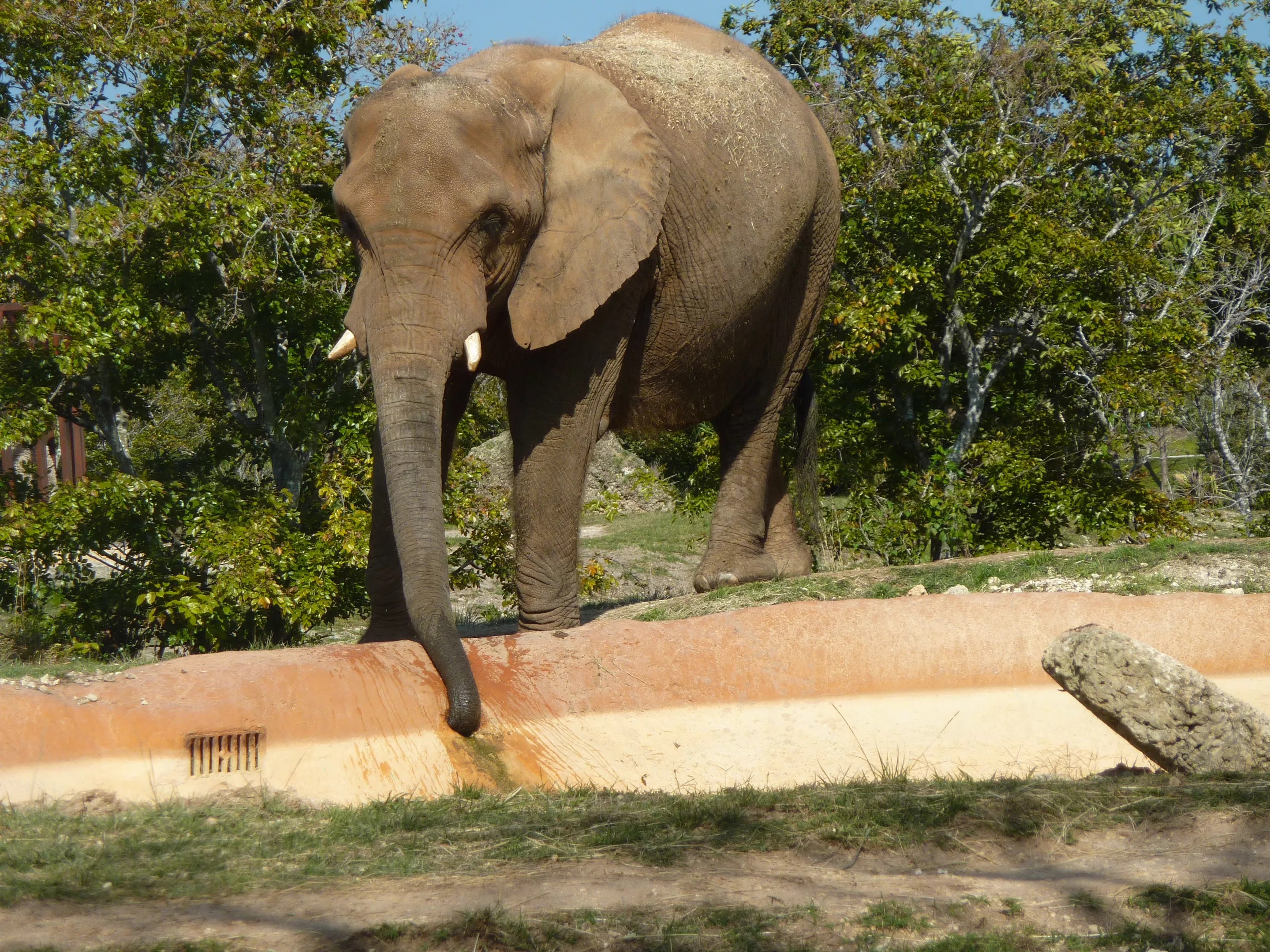
Photo by Lisa Jacobs / Flickr

Audio By Carbonatix
Last year, an African elephant at Zoo Miami tried to assert her dominance and knocked down another elephant, Cita, leading to Cita’s death.
“It was a tragic event, and we’re profoundly sorry it happened,” says Ron Magill, Zoo Miami’s wildlife expert and communications director.
Cita’s death and those of other elephants landed Zoo Miami on a list of the worst zoos in North America for elephants. In Defense of Animals, an international animal protection organization, highlighted alleged abuses and negligence on the part of ten zoos in the United States and Canada.
“Over the past several years, Zoo Miami has had one of the worst track records of any North American zoo for keeping its elephants alive, with four dropping dead since 2012,” the organization says on its website.
Zoo Miami ranked second on the list for those deaths and for its inability to protect elephants from acts of aggression by other elephants, the organization says.
“They knew these elephants had problems,” says Will Anderson, a coordinator on the organization’s elephant campaign. “There apparently had been some aggressions before this, and they didn’t separate them.”
In Defense of Animals dispatches an investigator to visit some zoos to observe conditions in which the animals live. The rankings are based on information from medical records and other documents gathered from public records requests and partner agencies. The organization says medical records obtained from Zoo Miami show Cita had been attacked by the same elephant, Peggy, on at least four other occasions.
The medical records, obtained by New Times, reference two altercations during which Peggy pushed Cita to the ground. Sometime in 2017, Peggy may have bitten Cita’s tail, causing “a large amount of hair loss.” The records reference other incidents between Cita and another elephant that resulted in “lameness” in her left hind leg and a wound on her left ear.
Anderson believes elephants shouldn’t be in zoos and says captivity stunts their social dynamics and structures. One of the organization’s goals is to have elephants moved to sanctuaries.
“There’s no way to create an ecosystem [in a zoo] that will meet their needs,” Anderson says. “An elephant without an ecosystem is not an elephant.”
In Defense of Animals claims that after Peggy’s aggression, Cita “remained on the ground, unable to fight for herself, for over 14 hours before she died.”
“An animal lying down for any amount of time suffers,” Anderson says. “Their weight starts pressing on their organs, on their lungs. It is not a good death.”
Magill says he takes offense to some of the organization’s claims, and in an interview with New Times, he provided explanations for them.
“They’re implying she was there for 14 hours without help,” Magill says. “We had the veterinary and keeper staff there that whole time. We put in bedding and hay and blankets around her to cushion her joints. She succumbed on her own.”
Magill says Peggy and Cita had gotten into prior confrontations only twice, not four times as the organization claims. The first time Peggy knocked Cita down, she was able to stand up. She couldn’t get up the second time. But Magill says the fall wasn’t what killed her.
“She couldn’t get up not because of injuries but because she had advanced arthritis,” Magill says. “She didn’t have the strength to get up.”
The first time Peggy knocked Cita down, the two were separated for about a week. Zoo employees then placed the two side-by-side in a barn with a barrier between them so they could see and smell each other. Staffers saw no signs of aggression and eventually reunited the two, Magill says. A couple of days later, Cita did something Peggy might have perceived as a threat. Peggy knocked her down again. Magill says that because herds are matriarchal, sometimes female elephants will become aggressive to assert dominance.
Elephants are social, and Magill says it would have been cruel to keep them separated, especially because they’re older. Cita was 50 years old when she died. Peggy is 43. Researchers who studied the lifespan of African elephants found that the median lifetime is 17 years for zoo-born elephants and 56 years in the wild. Zoo Miami wanted to keep them together and takes pride in not locking them up. The elephants share a 2.5-acre exhibit.
“We were hopeful they’d resolved the issue,” Magill says. “Unfortunately, they didn’t, and it ended tragically.”
He says the zoo is like a retirement home for elephants.
“I suspect in the next several years, we’ll lose more elephants because they’re of that age.”